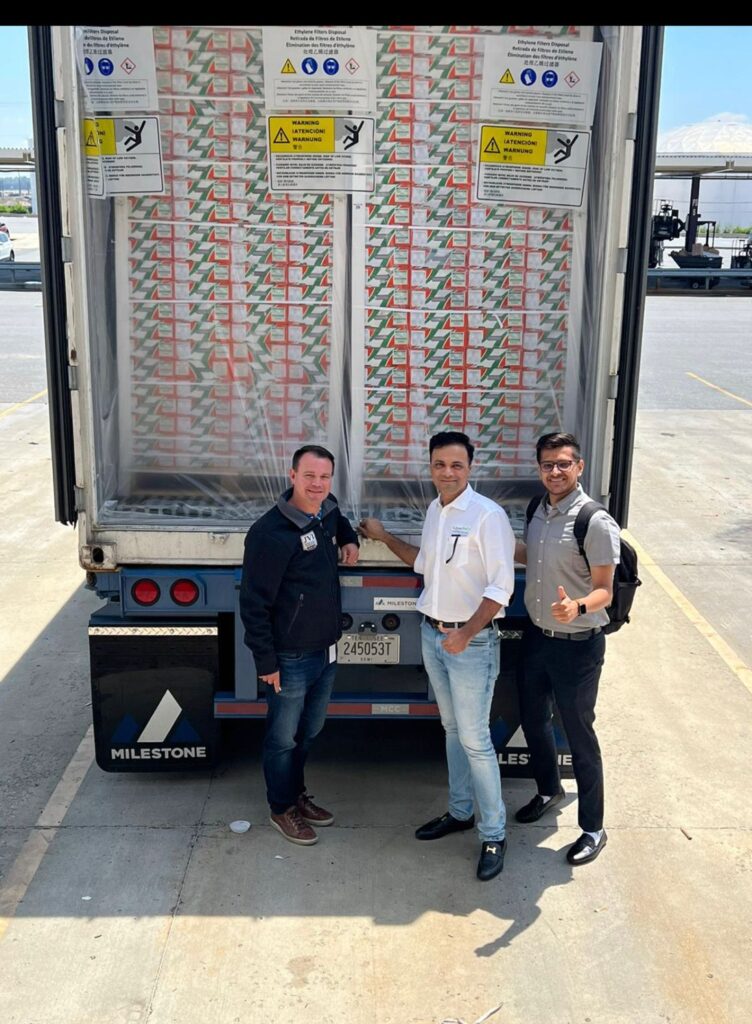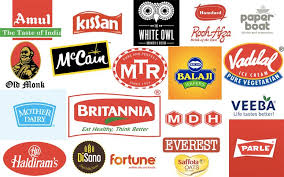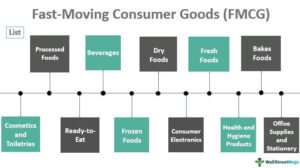I want to become a retailer of FMCG products. How do I go about it?
FMCG is a vast field and you need to decide what business you wish to do i.e. foods, non foods, cosmetics, commodities etc. One needs to decide what capital you would like to start with. After that you need to have adequate infrastructure (Manpower, godown & office).
How to become a distributor ?
To become a distributor you can contact an established FMCG company in the market, show your interest, ask them to appoint you as a distributor if there is a market currently not serviced/supplied or when ever a vacancy may arise. To become a distributor one needs to have right amount of investment required to keep inventory, godown space for keeping the inventory, sales team to service market & take orders, vehicles required t supply stocks. This investment amount can be figured out after discussing with the Sales representative of the company. Companies offers a fixed margin to distributors. TIN number in the name of business planned will be essential.
How to become a Retailer?
To be come a retailer one needs to have a space for a retail shop, check who are the distributors of fmcg companies whose products you want to store, contact the salesman or distributor for these companies, ask them to come to your shop to take orders. You can tie up with big companies for visibility space at outlet to display the products etc. As a retailer one need to has a GST number for transactions.
To start as FMCG RETAILER one needs to do the following things.
- Select a cool name for your retail shop.
- Find the best location where u need to setup the retail, either rented/ owned.
- Apply for GST number
- Apply for FSSAI ( Food License)
- In between the process identify wholesalers and distributors locally or any where in India depending upon the personal contact. Work with local wholesalers and distributors to get experience learn from all sources.
- Need to buy freezer etc. to store foods or products requiring cold conditions.( A good deep freezer cost around 14 to 15 k depending upon the requirement).
- After these all setup is done need to install a reliable Accounting software which is useful for item / product entries as well as for accounting purpose like Tally, Marg or any other being used by other retailers in particular area.
- Nothing else is required during startup except hard work and focus. Do not get distracted by any means.

How can I become a FMCG distributor?
- Decide your Product. FMCG is composed of various products.
- Business Plan. Business plan is the foundation of any successful business.
- Licensing & Registration. It is of utmost importance to get your business registered first.
- Location.
How do FMCG distributors work?
What are the 4 types of distribution channel?
How to start a distribution business?
- Choose your product.
- Identify your niche.
- Decide how you’ll sell products.
- Select how you’ll manage inventory.
- Determine adequate storage space.
- Get a business license.
- Improve your business skills.
- Find manufacturers.

How do I become a dealer for a product?
- Choose Product. Firstly, choose the products which you are going to sell.
- Contact Suppliers.
- Set up Work Place.
- Name your Business.
- Find Franchisor.
- Set Credit Policy.
- Build Network.
- Promote your Distribution Business.

How do I find a distributor to sell my product?
Any combination of the following (the more the better):
- Direct engagement. Figure out who the distributors are, and then send them samples or (better) visit them directly. The internet is helpful in identifying them.
- Retailer/consumer pull-through. If retailers or consumers demand your product, then distributors will magically appear. Social media and sampling out some product to influencers can help to build consumer demand.
- Trade shows. Visit shows to demonstrate your product for hundreds of distributors at a time.
The bottom line is that if you are a small producer, you need to pull the product through the market from the consumer side rather than push it through the market from the supplier side.
What is the best way to find distributors for my products?
Large distribution companies and retailers receive vastly more requests to distribute products than they can possibly accommodate. Working capital (inventory) is the financial lifeblood of distributors and they have to manage it ferociously to protect profits and margins. That means most distributors are aggressive about eliminating non-performing SKU’s and establish very strict requirements for prospective new suppliers.
Here are two solutions:
1) Start small. Contact local and regional distributors who are looking for an advantage in the marketplace and are approached by many fewer suppliers vs. the big guys. If you can successfully introduce your product through a smaller player, learn how to work with distributors and gain some momentum, you will eventually catch the attention of the larger players if your product is sufficiently compelling.
2) Utilize manufacturers’ representatives. All large distributors maintain relationships with a network of manufacturers’ rep agencies and meet with them on a regular basis. A good mfr’s rep can bring your product to the attention of a larger distributor who will not return your call. Even more important, a good mfr’s rep can help you assess whether or not your product and company are suitable for distribution and will help you prepare and understand requirements around financial strength, insurance and production capacity (large distributors have stringent standards for their suppliers in these areas and others).

What is the profit margin in FMCG?
In terms of profit margins, the FMCG business has a very thin margin overall. Profit margins can range from 2% to 25%. Due to the numerous steps the products go through before reaching the store and the customer, the profit margin in this industry is very low.

If you are looking for a distributor to find a product, then why not use a B2B trade website. Using a business-to-business online B2B platform to find product distributors online is both authentic and reliable.
IMPORTANT LINKS FOR FMCG RELATED SOLUTIONS
Getdistributor .com check products and brands available for distribution in your area.
Franchiseindia.com Check to buy sell expand your business or franchise.
Indiamart.com Find products to deal on one portal.
Tradeindia.com find products that suit your budget and choice to start a business.
indianretailer.com for updates on Fmcg Business.
Economictimes.com for latest trends and news on Fmcg sector.
Franchiseapply.com for distributorship opportunity.
Dealer.franchiseindia.com for business opportunity.
Takedistributorship.com for Fmcg related distribution opportunity
Vanik.com Find distributors. Sell across India
Franchisebirbal.com for Fmcg related Business.
Horecasanthe.com for Horeca and food service related growth opportunity.
Franchisemart.in All kinds of franchise opportynities.
Distributorcircle.com Check for distributorship in all sectors.
IndianDistribution.com Distribution opportunities in India.
Simultaneously ensure to keep in touch with established distributors and sales men in the field for leads on distributorship opportunity.
How much I can earn from setup of one Fmcg Brand distribution? How do I start a business of FMCG goods under your own brand? What are some companies in India which help put my FMCG products on a retail shelf?

Proper planning followup financial discipline and punctuality ,if followed correctly on day to day basis, FMCG holds a great business opportunity. … Therefore, starting an FMCG distribution business can be an exciting and lucrative business venture. You can consider becoming a wholesale supplier to retail stores, other wholesalers and exporters, and can even sell the goods directly to consumers.
The business usually starts with an idea of a certain product or category likely to meet a need in the market. Researching its target audiences well and understanding their buying behaviour helps figure out whether or not the idea is worth actualising.
Market research should ideally cover:
- Which product will serve the interest of potential consumers
- At what price and portion-size it will do so
- What the positioning will be
- What packaging and shelf-life would be suitable and
- Which place(s) would make it easily available for repeated purchase by consumers
From the Market Research stage, two simultaneous paths must be pursued: One which involves manufacturing and sales, so as to bring the actual product to the consumer as a tangible experience; the other which involves marketing so as to bring the intangible aspect of the brand to the consumer and influence her perception.
- Agrochemical Business. …
- Furniture Wholesale Business. …
- Organic Food Wholesale Business. …
- Ayurveda Products Wholesale Business. …
- Stationary Wholesale Business. …
- Children’s Toys Wholesale Business. …
- Kitchen Utensils Wholesale Business. …
- Snacks Distribution Wholesale Business.
- Pharma Distribution and wholesale
- Building construction materials and equipment.
- Automobile spares and lubricant retailer-ship.

Consumer Experience + Consumer Perception = Brand Birth.
It is at this stage that your consumer forms an opinion of value that the brand offers, based on the extent to which it fulfills her needs, and how it compares to options available in the market. It puts her in a position to accept or reject your product, either entirely or partially.
Consumer acceptance, backed by easy availability of product, usually leads to its repeated purchase—and thus the possible growth of the brand. When a consumer pays money for what she has experienced or perceived to be good value, she becomes a customer.
If consumers reject your brand or do not purchase it, you need to understand why, and try and do whatever it takes to make it work for them, or else the brand may die. In such a situation, the company will either close down completely or just close that vertical, and identify a new product or category that could resonate in the market.

Where do the retail giants like D-Mart, Heritage, More, etc buy the FMCG products that they are selling in their stores? Do they buy them from the distributor or directly from the manufacturer?
D-Mart (Modern Trade) chooses their supplier very consciously and in daily need categories they are mostly local or regional companies. The quality and pricing is simply unmatched in Market. That’s why there is clear advantage to D-mart in this segment. It’s not branded clothing in D-Mart. But it’s competitive to existing brands(Price and Quality) . And very affordable to common middle class family.
D-mart’s (Modern Trade) business is B to B (Business to Business) & B to C ( Business to Consumer). They buy directly from a manufacturer and sell it to customer at a less price. In regular business the product moves from Manufacturer – Depot – Distributor – Wholesaler – Retailer. So you pay more price when you buy from regular shop. Where as in D-mart case the product moves to them from Manufacturer – Depot – D-mart. So they get at a less price than the other shops. They get the additional profit. i.e., the profit of distributor, wholesaler & retailer. So the customer end up getting the same product at a lesser price.

I want to start a wholesale business of FMCG grocery products in Bengaluru. From where can I get the product? What will be my source of product for wholesale?
A wholesaler is one who can deliver or who has a storage capacity of one full truck.FMCG company will directly deliver to your warehouse wherever it may be thereby you can cut the middleman margin and this is happening with all FMCG companies supplying to companies like Dmart Reliance and similar stores who purchase directly from the factory
Funds invested in spot-payments to farmers co-ops ie Mandis (Santhe Katte) will ensure getting your stocks at reasonable cost. Thereafter, comes the storage of the commodities. The investment is substantial. Delivery vehicles to retailers enhance the interest of retailers. If you can organise this where a simple telephone call ensures timely delivery to a retailer, the investment will be worth
What is the best way to approach a large retailer to stock our new FMCG product?

A retailer can skip the distribution/wholesale participant and go directly to the manufacturer, but that won’t negate the work that the wholesaler performs in the supply chain which must now be performed by the retailer who does not have the wholesaler’s specialised systems, equipment and management expertise. This lack of specialised skills and infrastructure adds a difficulty that may not be obvious at first to the retailer enticed only by the cheaper price.
Many retailers have looked at the cost/benefit of taking this step and the vast majority find it far more profitable to stay with the status quo (above) than to skip the wholesaler and go directly to the manufacturer. When the benefit of lower price from the manufacturer is weighed against the increased costs, quite often a less profitable result is the outcome.
Here are the increased costs that the specialist retailer must face, if they go direct to the manufacturer:
- The manufacturer’s business model is built on selling high volume lots that are usually far greater than a retailer sells in a reasonable time – increased stock holding and storage costs is the result and in the most expensive space possible … retail space. Add to this the impact on your cashflow with your cash now tied up in inventory, putting pressure on your ability to pay other bills as they become payable.
- Manufacturing businesses are usually few, large scale and located remotely, away from typical retail zones, making lead times longer and delivery more expensive.
- Where wholesalers deliver good to a wide range of retailers via efficient daily small vehicle logistics, your purchase from the manufacturer will be a one-off costly one if you pick up the goods and a nightmare for the manufacturer’s semi-trailer when trying to deliver to a busy retail area.
- To obtain the same range of goods that a wholesaler sources from many different manufacturers, a retailer would be spending all their time managing deliveries from multiple supply contracts rather than just outsource this function to one wholesaler who has developed the expertise to do it well. In retail as in any business … time is money.
- While you as a specialist retailer are attending to the delivery, storage and management of goods from manufacturer, you are incurring a hidden opportunity costs due to the lost revenue from not attending to what you do best – selling goods to customers.
Anyway, whatever price you are paying from the manufacturer, your wholesaler would be paying considerably less due to their higher volume discounts. Adding to this is the fact that in the mix of mostly high volume wholesalers you are an insignificant customer to the manufacture and so are likely to be treated as such. Furthermore, many manufactures to protect their own profits and markets have a policy of only supplying wholesalers, making the direct purchase by retailers impossible.
Looking at all the increased costs and management hassles, it’s easy to see why the vast majority of retailers stay with the long established supply chain and buy their goods from distributors/wholesalers
Work with existing organization who are into distribution for a period and understand the complete procedure they follow. Also do understand their financial model and complete business plan. You should also do a study on their week points, which will help you to beat them tomorrow.
How much margin do retailers make in FMCG retails?What is gross margin and net margin in FMCG retail?
How much I can earn from setup of one Fmcg Brand distribution?
Margins depends upon the payment cycle if it is short and advance payment chances of margin increases as Manufacturer is ready to compromise on his margin because he is getting the money on the spot, but if it is credit based business it is really difficult to compromise on margins.
The margins are different for different sectors.
The distributors for FMCG companies, like -Nestle,Cadbury,GSK,HUL etc give margins for distributors somewhere from 4.5%-5.5%,1% will be extra on achievement of sales targets ,but after all the expenses you might just end up getting 2-3%max on turn over.
For wholesalers again it is different from different companies and for different products it can be from 9.5%-40% on Mrp
Retailers get from 8%-20%.
Margins again may vary for Branded companies – Non Branded Companies
Distributors : 5% – 10%
Wholesalers : 2% – 20% (Depending on the schemes given to those who buy in bulk or truck loads)
Retailers : 10%-25%
What if products are expired in the retail FMCG store?

The Normal practice followed is that the retailer would call up the distributor and have him take the Expired Goods back. The distributor in turn, has it re-imbursed from the manufacturer.
In established companies, they try to manage this pro-actively, by ensuring stocks are sold out ( by giving special offers, etc) before it reaches expiry. Normally, for regular / running brands, companies over time, would have even established a norm/limit based on which they handle every distributor’s expiry claims.
However, for new launches / unsuccessful products, companies would often take the bulk of the onus on themselves.
This is a common problem with food products like – Noodles, Biscuits, Breads, Cakes etc. Most of the food product have shelf life ranging from 3 months to 9 months.
But food products are highly in demand, so circulation is fast. The personal care, home care products have shelf life up to 24 months. There the chances of expiry is less.
All products which are supplied in market are purchased by distributor , and once it expires in market distributor collects it back for companies to reimburses the same value. The overall market expiry & returns are less than 0.5% of the overall sales for a distributor of food company, which can be further less for personal care/home care products.
Why these expiry products are collected back from market?
It is primarily done to avoid selling expiry products by retailer to consumers, as it might cause health hazards to anyone using those products, leading to bad name for the company.
All Brands want to serve their consumers to best of the ability, want to build long term franchise t grow the sales. Its difficult to build a strong brand name, time money and effort invested. A momentary lapse can bring the effort to waste.
“Unsaleable Items”- Outdated, damaged, and out-of-season items from supermarkets are sold at hefty discounts or sent to large clearing houses known as reclamation centers. These are most often operated by the supermarket chains themselves or wholesale distributors. Here, dangerous items such as broken jars and obviously contaminated or spoiled foods are disposed of. The remainder is sold into the salvage industry or donated to food banks.
Sell-In-India is far more important for Indian SMEs than Make-In-India – since growing sales and ability to compete with larger competitors is what Indian SMEs need today.

Distribution is the backbone of Indian market. Manufacturers need distribution channel partners across length and breadth of the country for survival and growth. However, building distribution channel in India is extremely tedious, time consuming and prohibitively expensive – as Indian distribution market is highly fragmented and unorganized. No wonder, only large companies with deep pockets like HUL, Colgate Palmolive, Nestle, Dabur etc. could build Pan-India distribution channel so far.

Today, when Internet and online is changing the face of Indian markets, distribution can not be left behind. There are many early adopters – specially small and medium manufacturers – who are successfully using online resources to build Pan-India distribution channel at extremely affordable cost.
Lets rework re-skill reinvent redesign methods to Sell More.
Top most festival Products FMCG consumers search today
World Wide Festive Trends Decoded What Indian festive consumers seek...
Read MoreHow right selection of FMCG Salesmen improves brand market share
How can FMCG Companies improve salesman’s technique in order to...
Read MoreHow most searched Fmcg sales and marketing words help newbie salesman
Why undestand FMCG sales management? Sales management is the process...
Read MoreHow Successful FMCG Salesman Starts his Day, a guide
How does one become a good sales executive in the...
Read More






